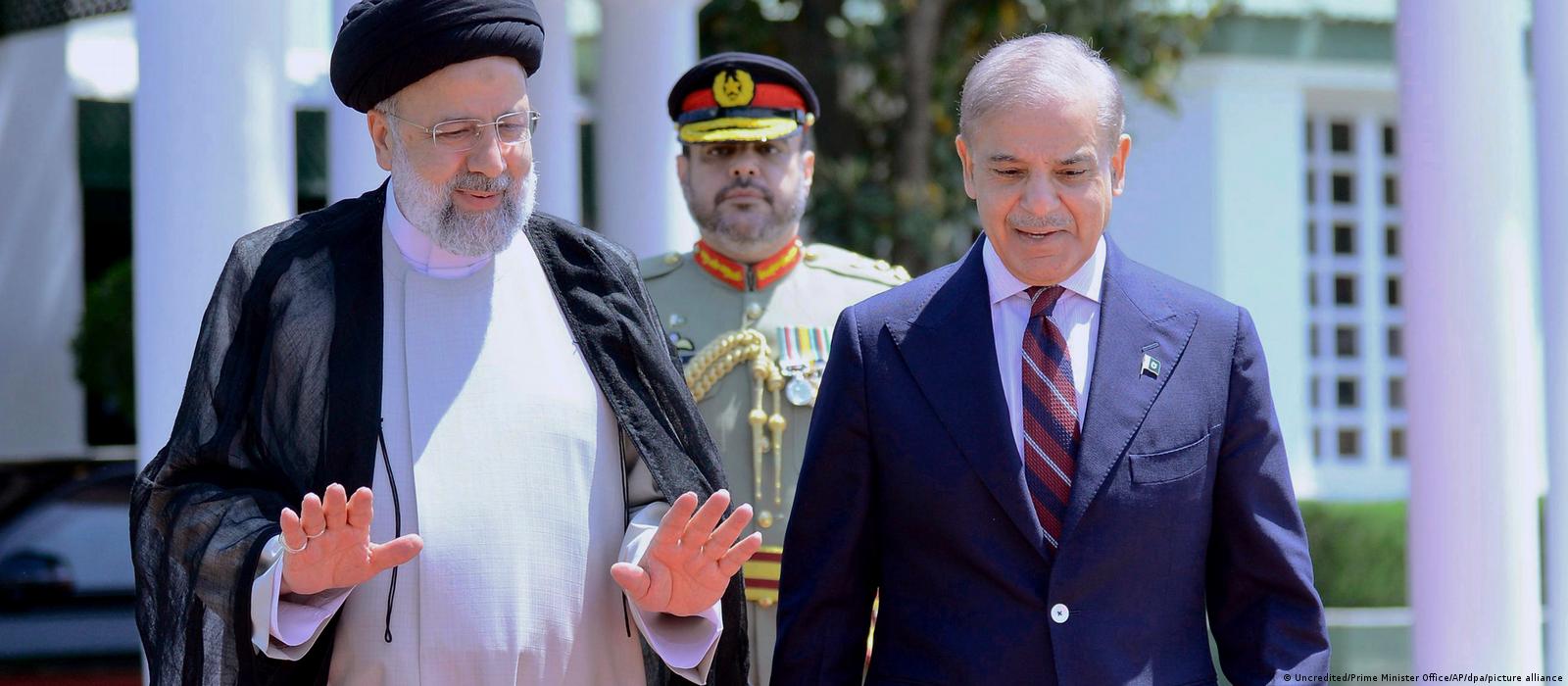The three-day official visit between Iranian President Ebrahim Raisi and Pakistan’s Foreign Office concluded on Wednesday with a joint statement stating that both countries “reiterated the importance of cooperation in the energy domain, including trade in electricity, power transmission lines, and IP Gas Pipeline Project.”
Through cooperative development-oriented economic projects, such as the establishment of cooperative border markets, economic free zones, and new border openings, the two sides “affirmed their commitment to transform their common border from a “border of peace” to a “border of prosperity” and agreed to further expand trade and economic cooperation,” according to the statement.
They decided to increase their bilateral trade to $10 billion over the following five years during extensive meetings between Prime Minister Shehbaz Sharif and Raisi on a variety of topics.
In particular, they emphasised the significance of a collaborative regional economic and connectivity model and a long-term, stable economic relationship for the socioeconomic development of Pakistan’s Balochistan province and Iran’s Sistan-Baluchistan.
A REGULAR THREAT IS TERRORISM.
As a shared threat to regional peace and stability and a significant barrier to the region’s development, Pakistan and Iran denounced terrorism in all of its forms and manifestations.
In order to effectively combat and counter this threat, they decided to employ a cooperative strategy that fully upholds the UN Charter’s core values, especially those of member state sovereignty and territorial integrity. They also decided to make use of the bilateral institutional mechanisms already in place to do so. Expanded economic and commercial prospects have been seen by both parties as a critical factor in enhancing the security in border areas.
In addition, they reaffirmed how critical it is for political, military, and security authorities in the two nations to regularly collaborate and share perspectives in order to counter dangers including kidnapping, terrorism, drug trafficking, and money laundering.
The Afghanistan
In the face of dangers from terrorism and drug trafficking, both parties reaffirmed their commitment to seeing Afghanistan grow into a sovereign, independent, peaceful, and united nation.
The two sides reaffirmed their commitment to further up counterterrorism and security cooperation and forging a unified front against terrorism, noting that the presence of terrorist organisations in Afghanistan constitutes a severe danger to regional and global security.
Although acknowledging Afghanistan’s sovereignty and territorial integrity, the parties agreed that a greater involvement of Afghans from all social classes in fundamental decision-making processes would reinforce the nation’s peace and stability.
BRICK TRADE
A complete agreement to fully operationalize barter trade mechanisms to promote economic and commercial activity is also mentioned in the joint statement. This is especially important for ongoing cooperative projects like border sustenance markets, which would improve the financial circumstances of locals and advance border security.
LINKAGE AND COLLECTIVENESS
In order to foster connectivity within their own nations as well as with the larger region, Pakistan and Iran emphasised the significance of utilising their unique geographic configurations.
Pakistan and Iran, as participants in the Economic Cooperation Organisation (ECO) and the Belt and Road Initiative (BRI), have reaffirmed their commitment to strengthening their cooperation in the fields of energy, infrastructure development, and connectivity. The sister ports of Gwadar and Chahbahar will have more strong, mutually advantageous ties added, as agreed upon by the two nations.
The significance of the prompt resumption of the SCO-Afghanistan Contact Group’s activities was emphasised, as both parties acknowledged the SCO’s role as a crucial forum for regional security and development in coordinating efforts to uphold stability and foster economic relations.
PAYING OUT DISPUTES PEACEFULLY
The joint statement said, “Taking note of developments at regional and global levels, both sides stressed the importance of peaceful settlement of disputes through dialogue and diplomacy to find mutually acceptable solutions to common challenges.”
Respecting international law and the will of the people living in that region, all parties emphasised the necessity of resolving the Kashmir dispute amicably and through discussion.
IRALI AGGRESSION
At the same time, the nations declared their unequivocal and firm condemnation of the ongoing aggression and crimes against the Palestinian people by the Israeli regime, as well as the cruel blockade of Gaza that has caused millions of Palestinians to be displaced and cause a great deal of death and destruction.
A ceasefire that is both immediate and unconditional, unhindered humanitarian aid to the besieged Gaza population, the repatriation of Palestinian refugees, and the holding of the Israeli state accountable for its crimes were among their demands.
In line with the goals of the Palestinian people, they reaffirmed their support for an equitable, all-encompassing, and long-lasting solution.
The attack on the consular section of the Iranian embassy in Damascus was also severely denounced by all parties as an intolerable infringement on Syria’s sovereignty and a threat to the country’s stability and security.
Understanding that the careless behaviour of the Israeli regime forces was a significant exacerbation in a volatile area, both parties appealed to the UN Security Council to stop the Israeli regime from encroaching on neighbouring territories and attacking foreign diplomatic establishments.

